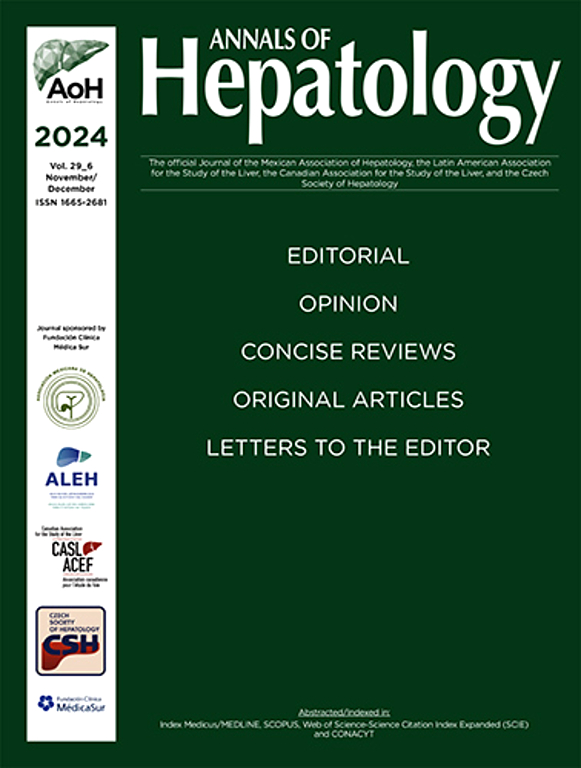EIF3B 通过 TGFBI/MAPK/ERK 通路影响肝癌细胞的侵袭和转移。
IF 3.7
3区 医学
Q2 GASTROENTEROLOGY & HEPATOLOGY
引用次数: 0
摘要
引言和目的:研究真核细胞启动因子 3B(EIF3B)对肝细胞癌(HCC)侵袭和迁移的影响及其潜在机制:研究真核细胞启动因子3B(EIF3B)对肝细胞癌(HCC)侵袭和迁移的影响及其潜在机制:通过癌症基因组图谱(TCGA)和基因表达谱分析数据集研究EIF3B表达的临床意义。免疫组化染色和免疫印迹技术用于检测 EIF3B 在细胞系和 HCC 患者组织中的表达。划痕试验和透孔试验用于测量不同 HCC 细胞株在体外的侵袭和转移。利用 RNA-seq 和识别失调信号通路确定 EIF3B 的分子机制。用 Western 印迹法验证了 EIF3B 信号改变在促进 HCC 进展中的作用:结果:EIF3B在HCC中的高表达与侵袭性临床病理特征显著相关,包括肿瘤分级晚和预后差。对培养细胞的研究表明,敲除 EIF3B 可抑制上皮-间质转化(EMT),从而抑制 HCC 细胞的侵袭和转移。EIF3B还通过提高pMEK和pERK的水平激活了TGFBI/MAPK/ERK信号通路:我们的研究结果表明,EIF3B 在 HCC 中发挥着癌基因的功能,它通过刺激 TGFBI/MAPK/ERK 信号通路加速细胞的侵袭、转移和 EMT。EIF3B 是治疗 HCC 的潜在靶点。本文章由计算机程序翻译,如有差异,请以英文原文为准。
EIF3B affects the invasion and metastasis of hepatocellular carcinoma cells via the TGFBI/MAPK/ERK pathway
Introduction and Objectives
To study the effect of eukaryotic initiation factor 3B (EIF3B) on the invasion and migration of hepatocellular carcinoma (HCC) and its potential mechanism.
Materials and Methods
The clinical significance of EIF3B expression was studied with The Cancer Genome Atlas (TCGA) and Gene Expression Profiling Interaction Analysis datasets. Immunohistochemical staining and western blotting were used to examine EIF3B expression in cell lines and tissues from HCC patients. The scratch assay and transwell assay were used to measure the invasion and metastasis of different HCC cell lines in vitro. The molecular mechanism of EIF3B was determined using RNA-seq and identification of dysregulated signaling pathways. Western blotting was used to verify the alterations of EIF3B signaling functioned in the promotion of HCC progression.
Results
Elevated expression of EIF3B in HCC correlated significantly with aggressive clinicopathologic characteristics, including advanced tumor grade and poor prognosis. Studies with cultured cells indicated that EIF3B knockdown inhibited HCC cell invasion and metastasis by depressing the epithelial-mesenchymal transition (EMT). EIF3B also activated the TGFBI/MAPK/ERK signaling pathway by increasing the levels of pMEK and pERK.
Conclusions
Our results indicate that EIF3B functions as an oncogene in HCC that accelerates cell invasion, metastasis, and the EMT by stimulation of the TGFBI/MAPK/ERK signaling pathway. EIF3B is a potential target for the treatment of HCC.
求助全文
通过发布文献求助,成功后即可免费获取论文全文。
去求助
来源期刊

Annals of hepatology
医学-胃肠肝病学
CiteScore
7.90
自引率
2.60%
发文量
183
审稿时长
4-8 weeks
期刊介绍:
Annals of Hepatology publishes original research on the biology and diseases of the liver in both humans and experimental models. Contributions may be submitted as regular articles. The journal also publishes concise reviews of both basic and clinical topics.
 求助内容:
求助内容: 应助结果提醒方式:
应助结果提醒方式:


